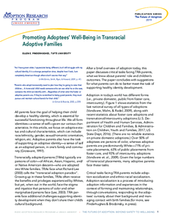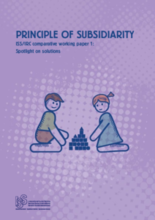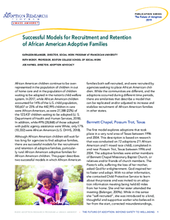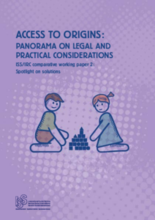Displaying 231 - 240 of 660
This report from the German Youth Institute (Deutsches Jugendinstitut e.V., DJI) assesses the adoption system in the Netherlands.
This paper discusses critical tasks facing adoptive parents of transracially adopted persons (TRAs), what we know about parents’ role and children’s outcomes.
Having the best interest principle and taking into account the individual needs of each child in intercountry adoptions, this paper endeavours to promote the two tier approach of the principle of subsidiarity by examining the drafting spirit behind international standards (Section 1), providing examples of legislation and jurisprudence (Section 2) and identifying promising practices (Section 3) that reflect the principle.
The Routledge Handbook of Critical Social Work brings together the world’s leading scholars in the field to provide a cutting-edge overview of classic and current research and future trends in the subject.
The objective of this paper is to examine the situation of orphans and vulnerable children (OVC) in Dar es Salaam, Tanzania in existing alternative care systems and explore the treatment of OVC in these systems.
The study examines from a comparative point of view some theoretical issues of the substantive conditions of adoption both in Romania and in the Republic of Moldova as they are regulated by the specific laws.
This single group pilot study explored the effect of child–parent relationship therapy (CPRT) for adoptive parents of preadolescents who reported attachment related concerns, stress in the parent–child relationship, and child behavior problems.
This paper describes two successful models in which African American families both self-recruited, and were recruited by agencies seeking to place African American children.
This article explores the inheritance rights of Indonesian citizens adopted by foreign nationals in terms of Indonesian inheritance law.
This paper is aimed at supporting the professionals who accompany adoptees and their families in the process of searching for one's origins, and the various authorities with the competency to make decisions on this matter.





